The two Chechen immigrants apparently responsible for the terror attack on the Boston Marathon may never have had any contact with al Qaeda—or even a single member of al Qaeda—but they are likely soon to be lauded as “heroes” of the global jihad.
It is much too soon to come to any hard conclusions about the motives and intentions of Tamerlan and Dzhokhar Tsarnaev, the alleged perpetrators, but it is not too soon to understand how al Qaeda and associated jihadists see the Chechen struggle against Russia in the context of their own ideology and narrative. Al Qaeda has long seen the Chechen struggle as part of the global war between Islam and its enemies. For the extremists who run al Qaeda and related movements, Russia’s actions in Chechnya are no different than Israeli actions in Gaza, French actions in Mali, or American actions in Afghanistan. All are allegedly part of a global conspiracy against Islam that ranges from the Caucasus to Kashmir to Bali.
In an audio message issued less than two weeks ago, Ayman Zawahiri, the Egyptian leader of al Qaeda and its chief ideologue, said the greatest enemies of Islam are the “biggest criminals in Washington, Moscow and Tel Aviv.” Thus Zawahiri lumped American, Russia and Israel together as the enemies of Muslims everywhere.
For Zawahiri and his predecessor, Osama bin Laden, this argument that Islam is under siege by a global conspiracy is nothing new. Zawahiri and bin Laden began their careers fighting in Afghanistan against the Russians. The Chechen struggle against Russia is for them only a continuation of that war and indeed of the Central Asian and Caucasian Muslims’ struggle against Tsars, Commissars, and now Putin that goes back to the 18th century. Zawahiri himself was briefly arrested in Russia in the mid-1990s, apparently while he was actively assisting the Chechen insurgency. Bin Laden encouraged Saudis to go to Chechnya to fight Russia.
For angry young Muslims radicalized by what has happened in their own homeland, the al Qaeda narrative provides an explanation for a bigger struggle that involves not just their own country but the entire Muslim world. At the same time it also gives them more targets for their anger. If an angry Chechen cannot attack a Russian target, then a soft target in his own city in America or Europe—a marathon or another public space—is an easier target.
Al Qaeda has been encouraging just such attacks for the last several years. The Yemeni American Anwar al-Awlaki, who was killed by a drone strike in 2011, articulated it in the English language web magazine he helped create, called Inspire, that also printed simple manuals for how to build a bomb in your family kitchen. The attempt by a Pakistani American, Faysal Shahzad, to blow up a car bomb in Times Square in May 2010 (which was foiled by NYPD at the last minute), was an early example of this kind of small but devastating attack. Shahzad has now become a hero in the al Qaeda narrative even though he failed in his attempt.
Whether al Qaeda had any role – direct or indirect by the internet – in the radicalization of these two men, it is likely to revel in the results of their attacks in Boston. While the attack was nowhere near the magnitude of 9/11, it has consumed the American media and political scene for almost a week so far, led to the unprecedented lockdown of an entire American city, and sent the White House itself into enhanced security.
Americans have every right to ask: Why do they hate us? Americans are not responsible for the ugly civil war in Chechnya, or the horrendous terrorist attacks carried out by Chechen terrorists in Moscow and other Russian cities. Unfortunately the global jihadist movement and its violent ideology doesn’t see the differences that we rightly see. For according to the narrative of Ayman Zawahiri, Islam is under attack from every direction, and the jihadist answer is to strike back in New York, Madrid, London, Toulouse—and now Boston.
The Brookings Institution is committed to quality, independence, and impact.
We are supported by a diverse array of funders. In line with our values and policies, each Brookings publication represents the sole views of its author(s).
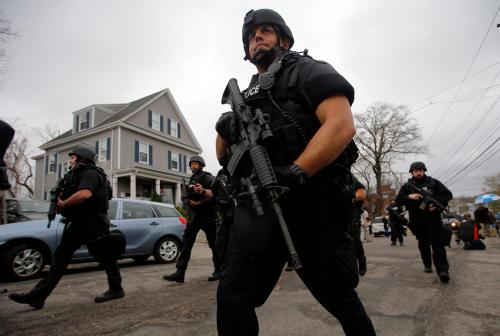
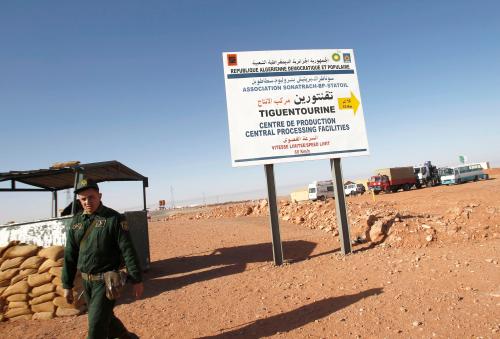
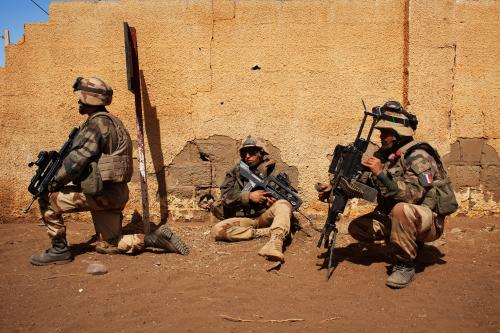
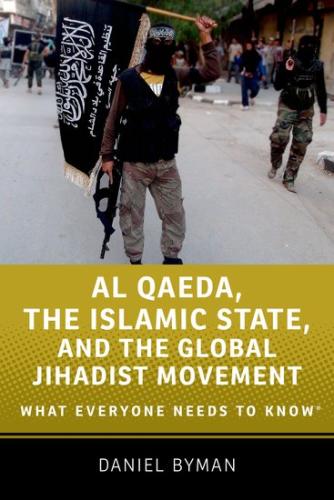
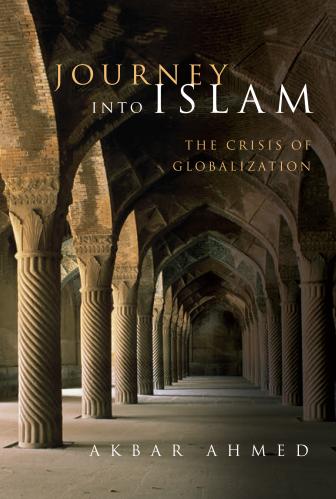




Commentary
Op-edAl Qaeda is Probably Pleased with Boston Bombing
April 19, 2013